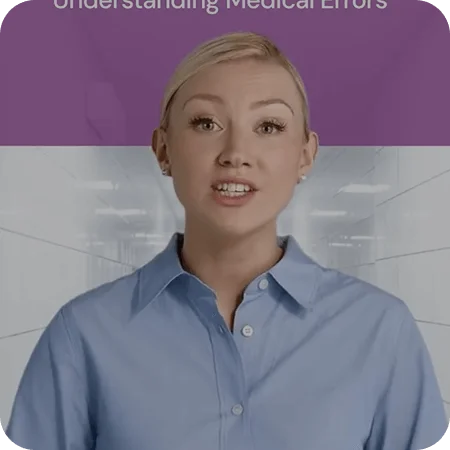Athetoid Cerebral Palsy
Experienced Legal Help for Families Dealing with Athetoid Cerebral Palsy in Pennsylvania

If your child has been diagnosed with athetoid cerebral palsy, you may be facing significant challenges. While some cases of athetoid cerebral palsy are unavoidable, there are instances where medical negligence during birth may have contributed to the condition. At Latona Law, our experienced attorneys specialize in birth injury cases and can help you determine if your child’s condition was preventable and pursue the compensation your family deserves.
Get started
Contact us for a free Birth Injury case evaluation

Why Choose Latona Law?
For over 30 years, Latona Law has been a trusted advocate for families in the Wilkes-Barre/Scranton area dealing with birth injuries. Our attorneys bring extensive knowledge and experience to every case, working closely with medical experts to identify potential negligence and build a strong case. We offer free consultations and only charge fees if we recover compensation for you, ensuring that you receive the support you need without financial risk.

What Is Athetoid Cerebral Palsy?
Athetoid cerebral palsy is a form of cerebral palsy characterized by uncontrolled, involuntary movements due to damage to the brain’s basal ganglia. Although it is less common than other types of cerebral palsy, it can result from medical errors during birth. Identifying whether negligence played a role in your child’s condition requires a thorough investigation of the care provided before, during, and after delivery.
Why Choose Latona Law?
Latona Law has been serving families in the Wilkes-Barre/Scranton area for over 30 years, focusing on cases involving birth injuries and medical negligence. Our team of skilled attorneys and medical experts work tirelessly to analyze your case, identify potential medical mistakes, and determine if negligence contributed to your child’s condition. We are committed to providing comprehensive legal support and do not charge fees unless we secure compensation for your family.
Common Causes of Athetoid Cerebral Palsy
Athetoid cerebral palsy can result from several types of medical negligence, including:
- Delayed Delivery: Leaving the child in the birth canal too long, causing a lack of oxygen to the brain.
- Failure to Recognize and Treat Seizures: Not addressing seizures promptly after delivery.
- Prolapsed Cord: Failing to detect and manage a prolapsed umbilical cord.
- Excessive Use of Medical Interventions: Overuse of vacuum extraction or Pitocin to induce labor.
- Failure to Perform a Timely C-Section: Not performing a C-section when fetal distress is evident.
- Neglecting Fetal Monitoring: Ignoring changes in fetal heart rate or not planning for a C-section given risk factors.
- Delayed Diagnosis and Treatment: Failing to diagnose and treat jaundice, sepsis, or meningitis in a timely manner.
Types of Athetoid Cerebral Palsy
Athetoid cerebral palsy includes various movement disorders, such as:
- Dystonia: Slow, rotational movements of the torso, arms, or legs.
- Chorea: Sudden, involuntary movements, especially in the fingers and toes.
- Athetosis: Sluggish, writhing movements, mainly in the fingers and face.
- Choreo-athetoid: A combination of chorea and athetosis.
- Ataxia: Loss of balance and coordination.
- Rigidity: High muscle tone causing restricted movement.
- Dyskinesia: General term for involuntary movements.
Signs of Athetoid Cerebral Palsy
Look for these signs in a child with athetoid cerebral palsy:
- Slow, uncontrolled movements of the limbs and trunk.
- Small, rapid, random, and repetitive movements (chorea).
- Increased involuntary movements during emotional stress or excitement.
- Difficulty with posture, balance, and coordination.
- Issues with facial muscle control, including grimacing and drooling.
- Speech and language disorders, known as dysarthria.
- Problems with eating, and potential hearing and vision impairments.
Indicators of Medical Negligence
Consider these indicators of potential medical negligence:
- Use of forceps, vacuum extraction, or emergency C-section during delivery.
- Resuscitation (CPR) required immediately after birth.
- Transfer to another hospital or time spent in the NICU.
- Seizures occurring shortly after birth.
- Need for special testing, such as MRI or brain scans.
- Oxygen required to facilitate breathing after birth.
- Low APGAR score at birth.
Get a Free Case Evaluation
If you believe that medical negligence may have contributed to your child’s athetoid cerebral palsy, contact Latona Law today at (570) 825-9000 for a free consultation. Our dedicated team will review your case, explore potential legal options, and strive to secure the compensation and justice your family deserves.
Get the Answers and Justice Your Family Deserves
If you suspect that medical negligence contributed to your child’s birth injury, don’t wait. Contact Latona Law at (570) 825-9000 to schedule your free consultation. Our compassionate and dedicated team will guide you through the legal process and fight for the compensation you need to support your child’s care and recovery.
